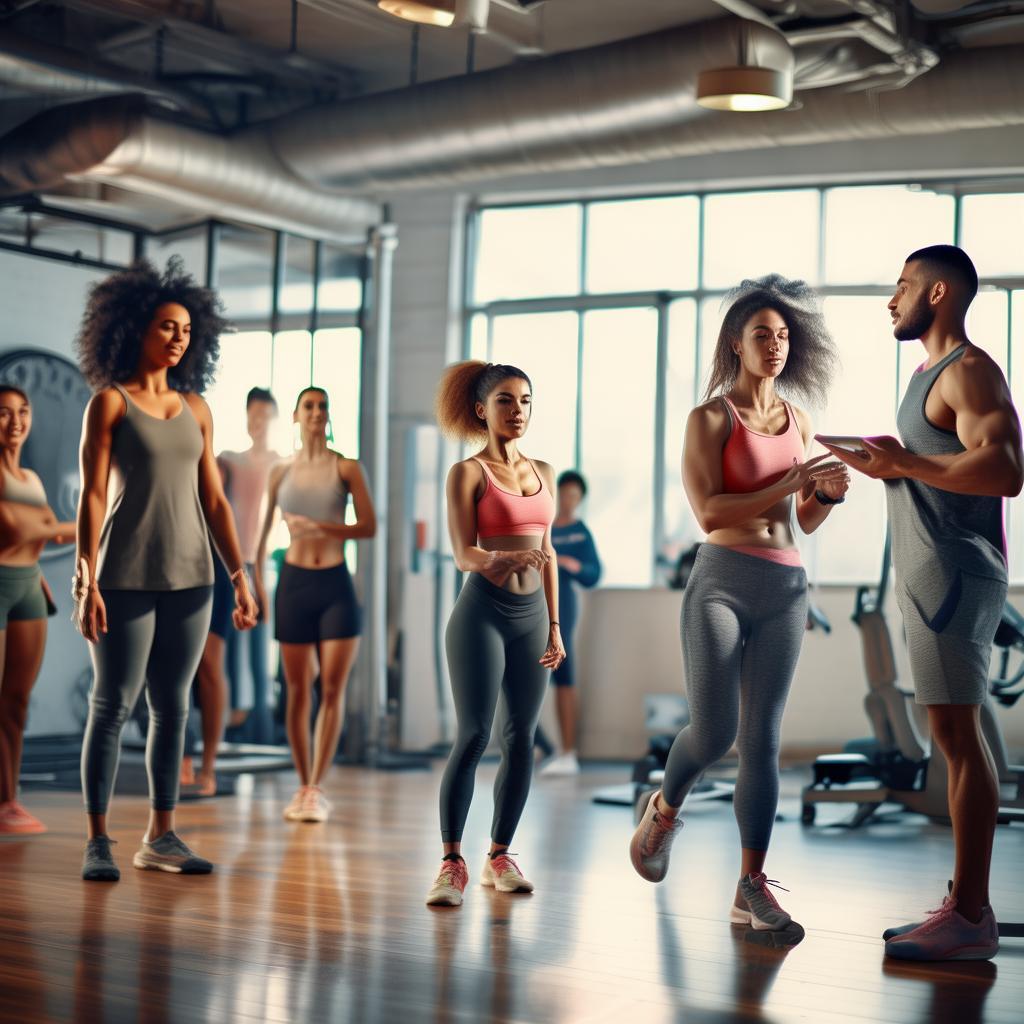Misconceptions in Fitness Diet
Good eating habits play a crucial role in fitness. However, there are several common misunderstandings about fitness – related diet. For instance, many people think they should drink just enough water. In fact, water molecules are involved in the whole – body metabolism. Drinking more water, about 2.3 liters per person per day, can keep the microvasculature clean and unobstructed, and also help with the regeneration of muscle cells by frequently cleaning body cell tissues.
Another common belief is that one should not eat before or during exercise. While the vast majority hold this view, it cannot be generalized. If you feel your muscles need it, appropriate food intake is acceptable.
Some also think that eating more nutritional supplements can help improve fitness results. But for most healthy adults, supplements are unnecessary and may even lead to overeating. Excessive caloric intake can cause fat accumulation, and excessive meals are the main way to get wrong nutrition. Imagine having strong muscles built through hard – training covered by a thick layer of fat.
Diet Matching During Fitness
Cereals are the body’s primary and most economical source of caloric energy. After exercise, a large amount of carbohydrates need to be supplemented, and the body requires about 80% of its caloric energy from cereals like wheat, rice, corn, and millet.
Fish is rich in animal protein, calcium, phosphorus, and vitamins A, D, B1, B2, etc., which are higher than those in pork, chicken, and other animal meats. The protein in fish is complete protein, and the amount and ratio of essential amino acids in it are similar to those in the human body, making it most suitable for human needs, easily digestible and absorbable, with an absorption rate of 96%.
Fresh green leafy vegetables, fruits, beans, and coarse grains are also important. For physical exercisers, natural vitamins are usually sufficient after exercise, and there is no need for vitamin supplements.
Benefits of Fitness
One of the most basic benefits of fitness is to improve body shape. Through fitness, any part of the body (as long as it has muscle – tissue parts) can be increased or decreased, and its shape can be effectively changed to achieve a beautiful shape, and this process can be controlled.
Fitness also makes people energetic. With a strong body, the whole person becomes full of energy and can maintain the best mental state at all times.
It is also beneficial to health. Fitness has a stronger stimulation on human muscles, bones, blood – circulation system, respiratory system, endocrine, etc. compared with general exercise, and is more effective in improving human health.
Optimal Workout Times in a Day
6:00 am – 11:00 am
For some non – working people, using the morning time for exercise is a good choice as long as they do what is necessary for their body. However, the body’s range of motion in the morning is smaller, so the warm – up time needs to be increased to activate the body functions and reduce the risk of injury. Also, do not skip breakfast for fat loss or exercise on an empty stomach, as it can easily cause hypoglycemia and dizziness. Appropriate nutrient intake is required to provide enough energy for exercise and prevent muscle loss. If you had insomnia the night before, it is not advisable to exercise in the morning due to reduced training efficiency.
Noon – 14:00
Noon is the hottest time, and outdoor exercise at this time is likely to cause heatstroke. But if exercising indoors, it can be a good option as the body is warmer and more flexible. Remember to replenish enough water before exercise to prevent the large loss of electrolytes. It is best to wait for more than 1 hour after lunch for digestion before exercising to avoid small abdominal aches and poor performance.
16 – 18 pm
This is the best time of the day to exercise. It is just after work, and the amount of oxygen is most adequate, which can further improve the respiratory effect and enhance sports performance. Eat some carbohydrates before exercise to replenish energy and prevent weakness during exercise. After exercise, replenish protein to repair the muscles properly, and have a meal after taking a shower.
For those who do not have time for daytime fitness, they can choose to train 1 hour after dinner. Although everyone’s fitness schedule is different with its own advantages and disadvantages, adjustments should be made according to one’s own pace of life and work style, reducing the time spent on daily commuting to achieve the best exercise time.
The above is the knowledge about fitness – related diet. Have you learned it? Finally, wish you a healthy fitness journey and a great body. You can pay attention to the tutorial home network for the latest daily fitness knowledge.





